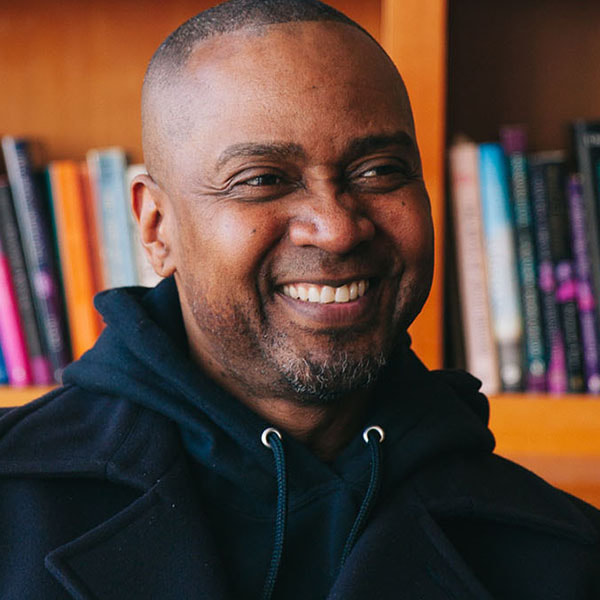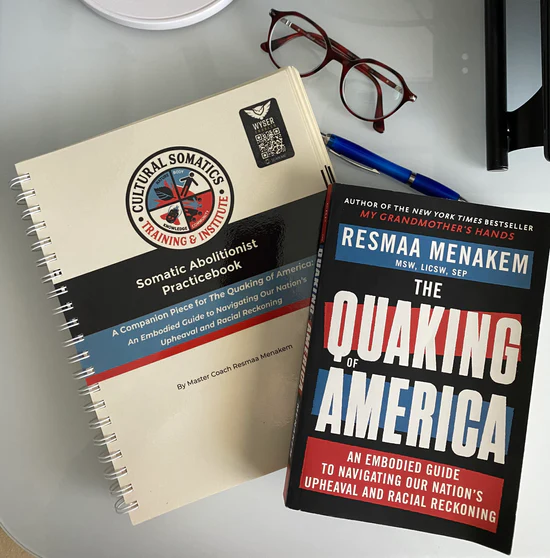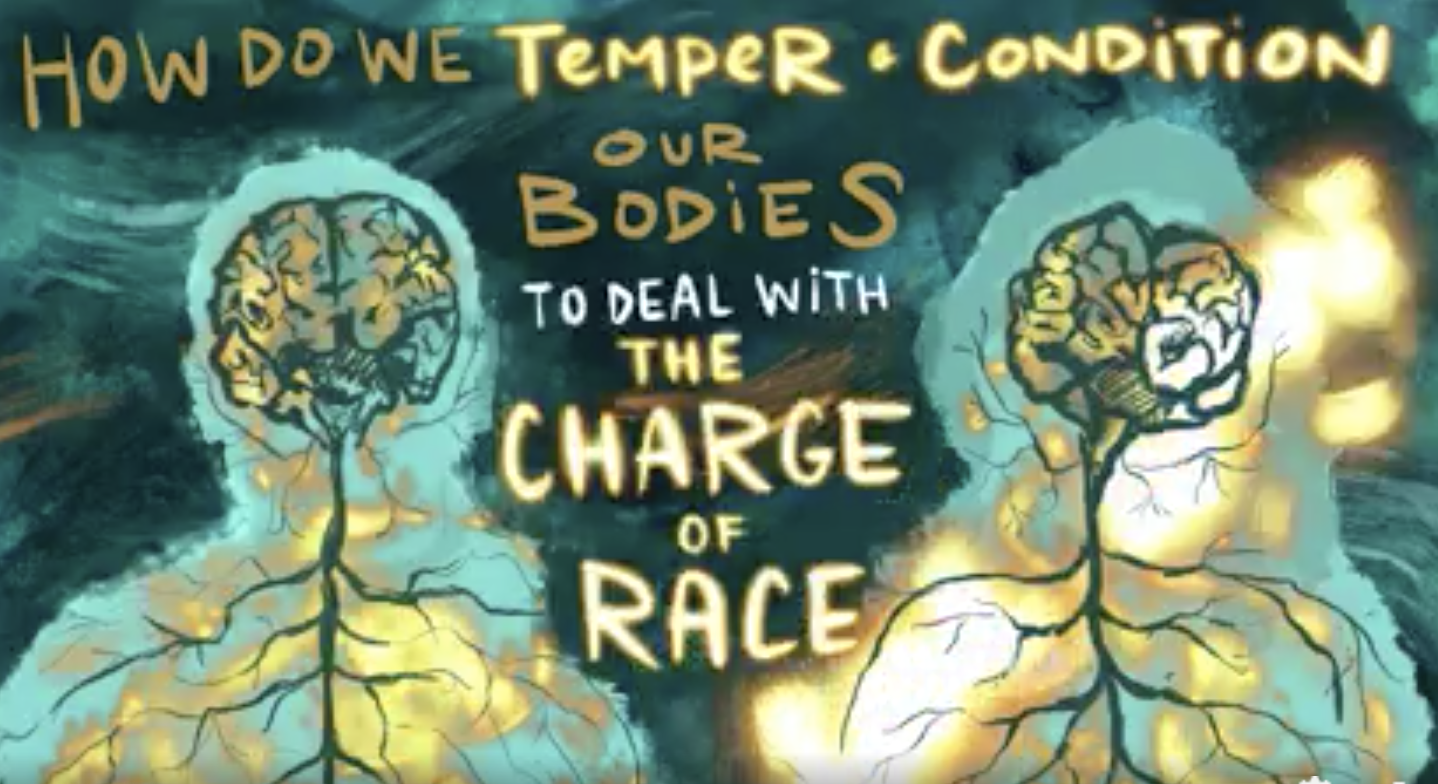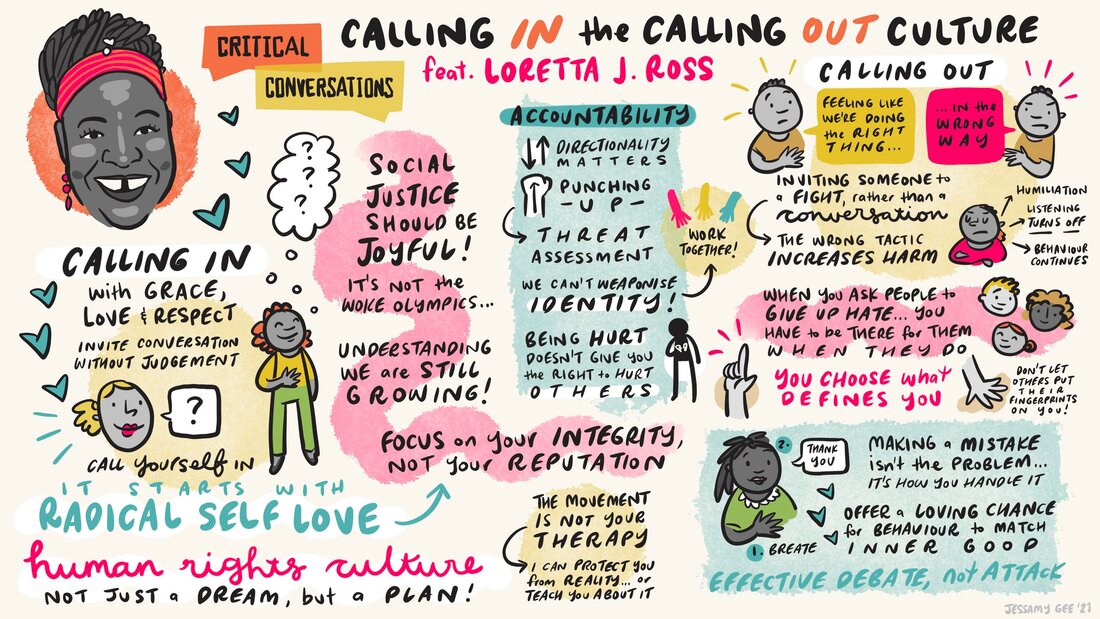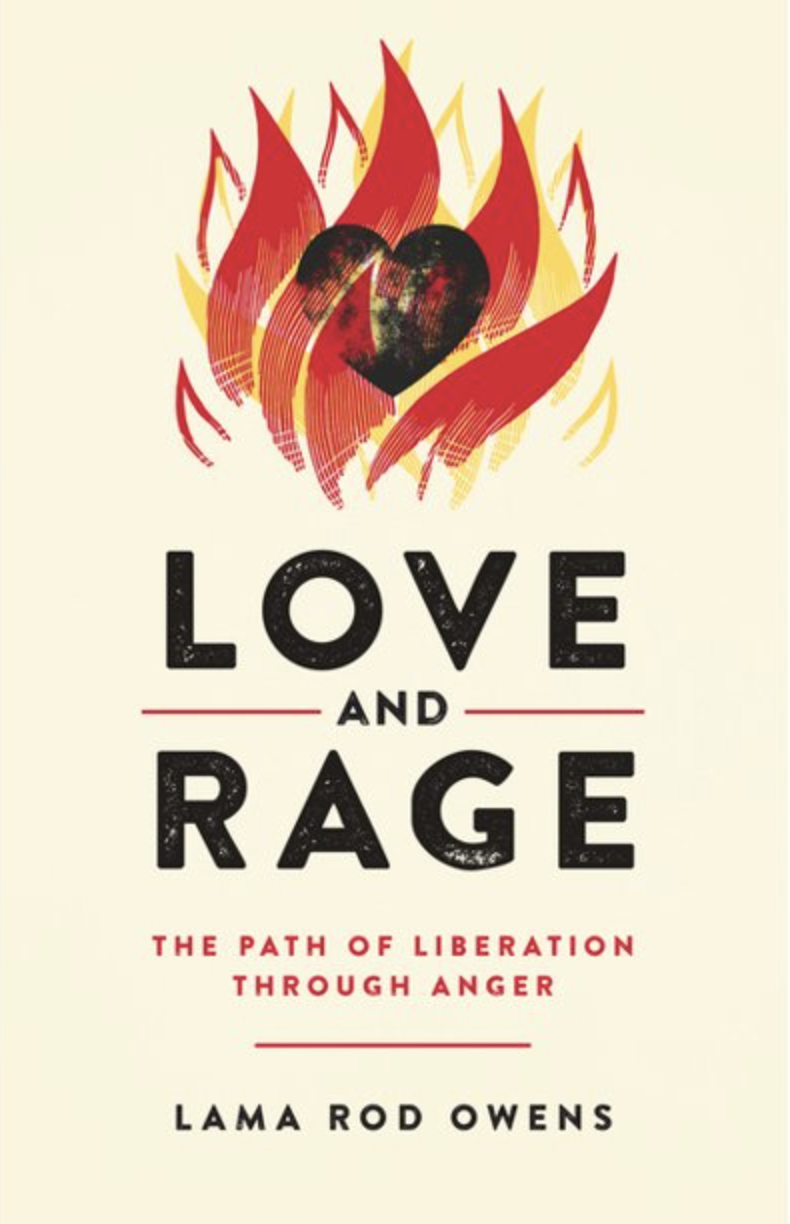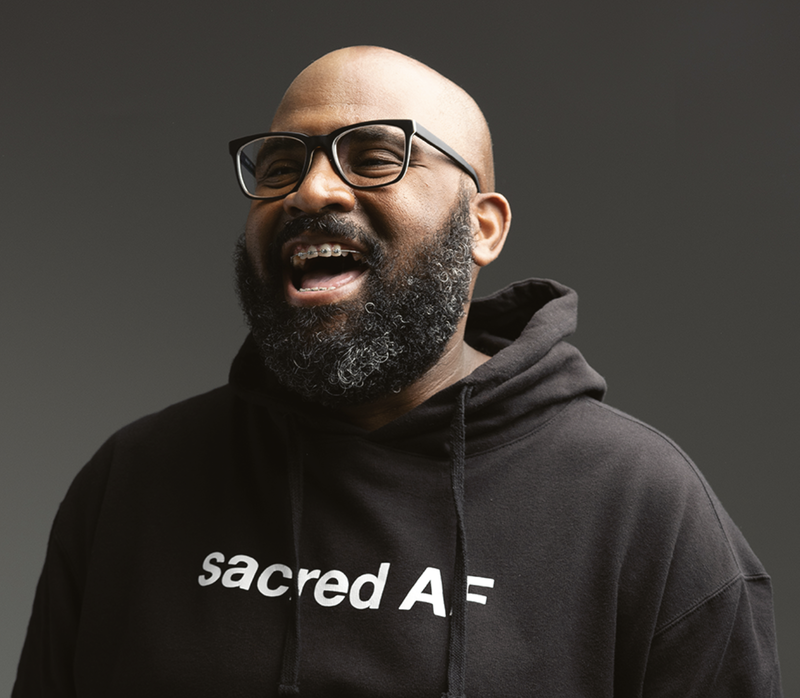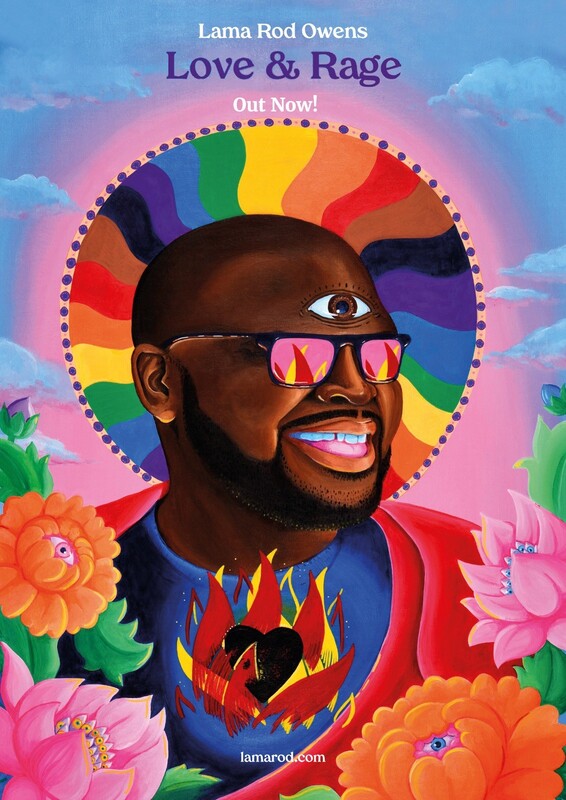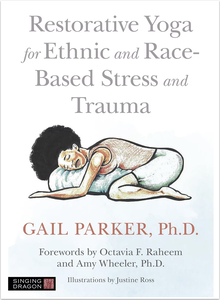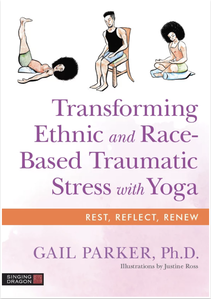|
Resmaa Menakem is a healer, therapist, trauma specialist, and author of My Grandmother’s Hands and The Quaking of America among others. Resmaa is also the originator and key advocate of Somatic Abolitionism, an embodied anti-racist practice of living and culture building that centers the healing of historical and racialized trauma we carry in our bodies and in our spirits. We have been learning with Resmaa for over three years, deepening our work around somatic trauma therapies and the regulation of the nervous system. We thoughtfully incorporate this knowledge into our work with organizers and community members so that we can cultivate resourcing and shared healing practices, decolonize our bodies and minds, and move to collective action.
Somatic Abolitionism is demanding and requires the commitment of a daily practice and high levels of self-awareness. Resmaa is a direct and compassionate teacher whose brilliance and heart illuminate this hard, necessary work. This is a key study for popular educators, organizers and facilitators working with multi-racial communities that have experienced high levels of individual and community trauma. Resmaa also introduced the term "bodies of culture" to refer to all human bodies not considered white. Read more about Resmaa Menakem. Watch Resmaa discuss racialized trauma. Upcoming Foundations in Somatic Abolitionism sessions. Organizing and movement building are collective efforts. Only together, through institutions, cross-organizational collaboration, and ecosystem connection, can we reshape the world. But within these cooperative efforts are individuals. And as individuals within this work, we often find ourselves in deep conflict, hurt by the way we treat one another. Across the country, our collective efforts are frozen or destroyed by our responses to this conflict. At Movement Matters, we are constantly trying to learn new skills and approaches to create processes that care for the individual, our organizations, and our collective work. The Calling In: Creating Change Without Cancel Culture course by Loretta J. Ross and Loan Tran is one source of this learning. We have been engaging with their material for over a year and the entire MM team enrolled in the course this October.
Loan Tran, who is credited with coining the phrase “calling in”, frames cancel culture as a product of our carceral system of punishment. They add that if we are committed to a human rights framework, we must create systems for relationship building and accountability that free us from these dominant paradigms. Calling In culture is one such mechanism. Ms. Ross and Loan Tran take participants through the 5-C Continuum (Calling Out, Canceling, Calling In, Calling On, Calling It Off) and discuss how/when each is appropriate in our movement spaces, including distinguishing between how we engage with people “on our side” versus targets of our organizing campaigns. Though the majority of the courses focus on Calling In as a strategy of radical love to uphold our movement spaces, Ms. Ross and Loan Tran explore the ways in which we “punch sideways” at one another due to our trauma responses and deep socialization in the oppressive systems under which we live. However, they urge that if we are to build a real human rights movement that stretches far, wide and deep, we cannot cancel each other and we must find other ways to handle conflict that go beyond the examples provided by society. The course also helps us examine how to adhere to Calling In practices when faced with uneven power dynamics within our movement institutions. It does not shy away from the need for accountability and change within our work, but rather reexamines our often instinctual reactions to try to achieve them. In addition to the theoretical grounding to Calling In culture, the course also offers learning labs, led by somatic practitioner Desiree Hammond, where participants are able to practice and embody this process. As we continue to learn and explore this methodology, we look forward to incorporating it into Movement Matters’ approach to accompaniment and capacity building. Visit Loretta Ross' Website Learn More About the "Calling In" Online Sessions Former community organizer, Lama Rod Owens is a Buddhist minister, author, activist, yoga instructor and authorized Lama, or Buddhist teacher, in the Kagyu School of Tibetan Buddhism. He is one of the leading voices in a new generation of Buddhist teachers. He holds a Master of Divinity degree in Buddhist Studies from Harvard Divinity School. He is the co-author of Radical Dharma: Talking Race, Love and Liberation. His teachings center on freedom, self-expression, and radical self-care. A long labor of love, Lama Rod's second book, Love and Rage: The Path of Liberation Through Anger, was written as a guidebook through these difficult times. It addresses the important work we must do to take care of our deep hurt in order to experience the emotional liberation needed to embody fierce and radical love for ourselves, others, and the planet. Lama Rod writes, "We are now in a period when we are having to confront the reality of truth - truth about ourselves, our relationships to each other, to systems of violence, to capitalism, and ultimately to the fact that we can no longer live like we have in the past. My hope is that this book supports you and contributes to that effort." Lama Rod also leads the in-depth Love and Rage 7-week course and online practice group. The course teachings include: compassion-based processes to manage cumulative trauma; what self-care really looks like; practices to connect and engage with our ancestors in order to ground ourselves during difficult times and enrich our self understanding; and how to be loving, open and vulnerable... but still fierce! Stay tuned for the 2023 course dates.
Visit Lama Rod Owens' Website We are under a great deal of psychological stress. We spend a lot of our time in our stress responses, especially those of us enduring ethnic and race based stress and trauma. These ceaseless stressors impact our bodies in countless ways, showing up as anxiety, inflammation, and much more. Even as we aim to relax and restore ourselves to continue on, it is often difficult to find true release. We can take that stress with us even when we go to bed at night, still not finding the solace our bodies, minds, and spirits really need. The practice of Restorative Yoga can be a gateway to relief that can be difficult to access even in sleep. Restorative Yoga requires little physical exertion, and uses props (like a pillow, bolster, blanket) to support the full release of the body's tension. If you've taken a yoga class, it's possible that you've experienced a restorative posture towards the end of class—with the lights turned down low, and you holding one posture in stillness, maybe lying on your back. The stillness is important. It helps our bodies move into the opposite of the stress response, the relaxation response—where our body is able to engage its processes of long term health, like digestion of our food, strengthening of our immune systems, and processing of the traumas we otherwise have to push down. Restorative Yoga can help us begin to heal, by relearning how it feels to truly be at ease.
Dr. Gail Parker’s Restorative Yoga for Ethnic and Race-Based Traumatic Stress and the companion workbook, Transforming Ethnic and Race-Based Traumatic Stress with Yoga are a wealth of information about how our oppressive structures wreak havoc on our nervous systems, and how we can use the practice of Restorative Yoga to heal and sustain ourselves, body and soul. I am currently in the process of reading the book and working with its companion workbook, and am deeply grateful for the resource. As a former direct action organizer, recovering workaholic, and a queer Black woman with a long history of inflammation-induced illness, restorative yoga has become an essential practice of mine. I hope it can offer some rest to you too. Contributed by Asha Carter Certified Yoga Instructor, MM Team Member, & Co-Founder of Cambium Collective Visit Dr. Gail Parker's website. |
AuthorsMOVEMENT MATTERS Archives
October 2023
Categories
All
|
